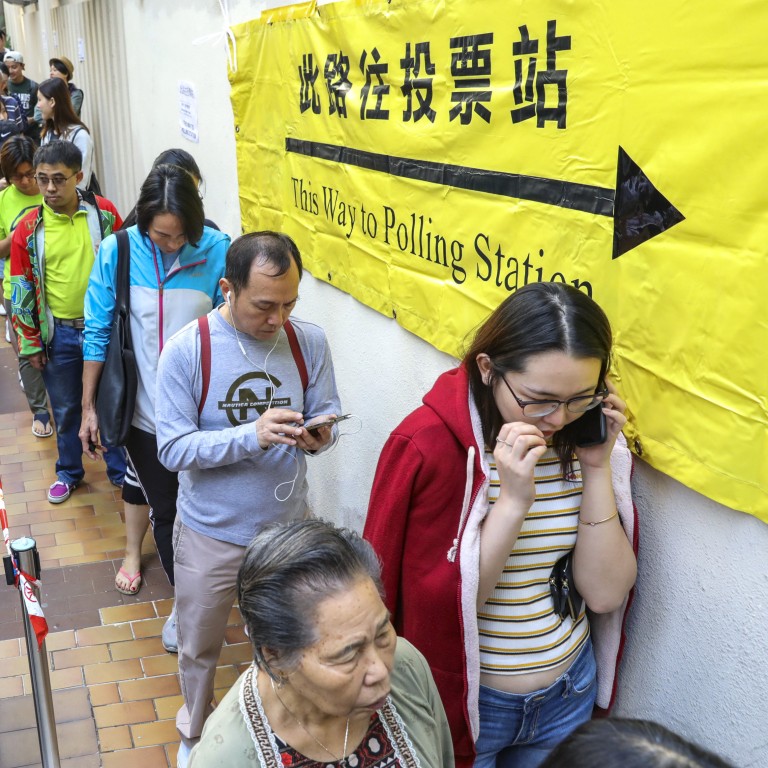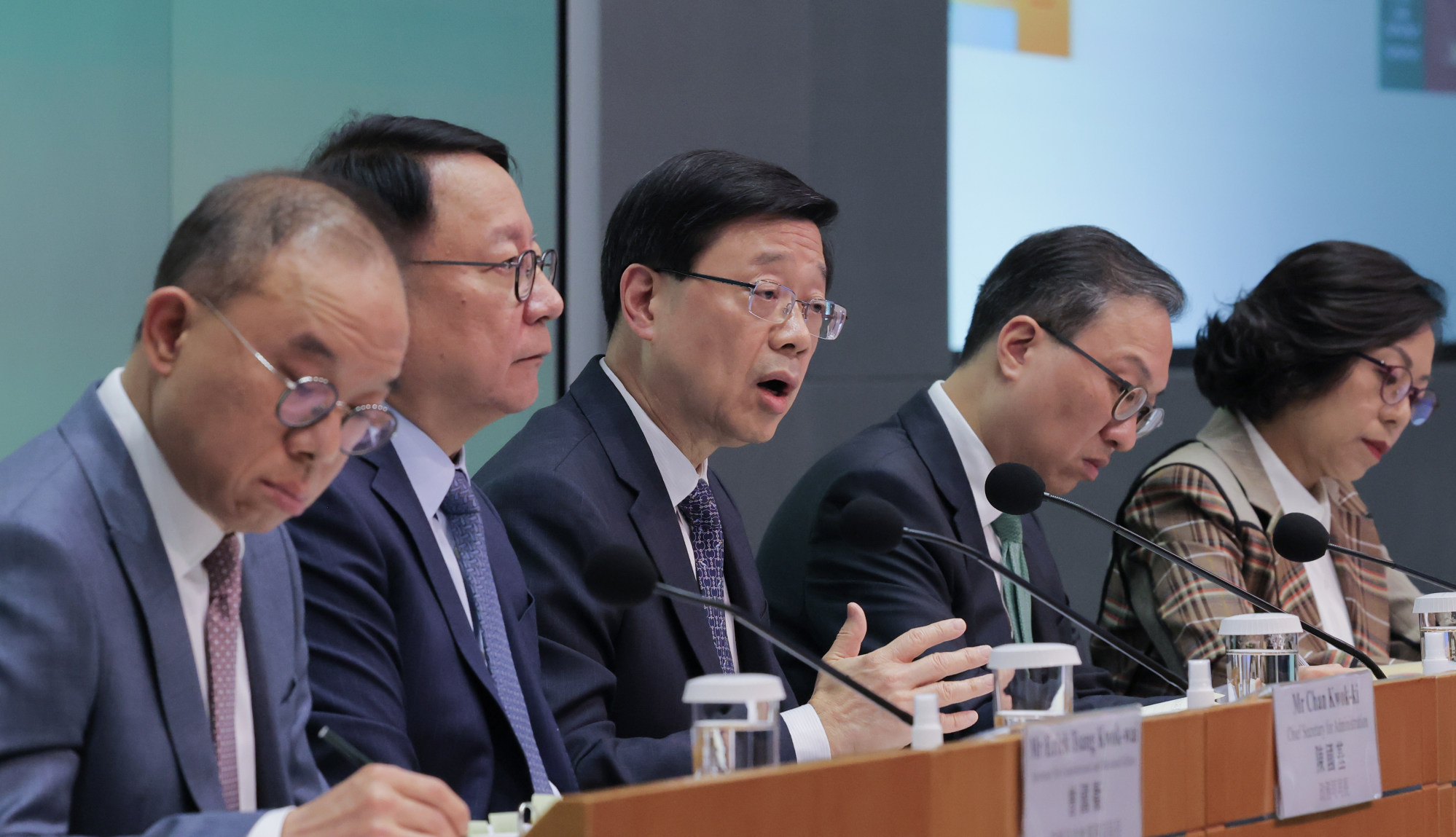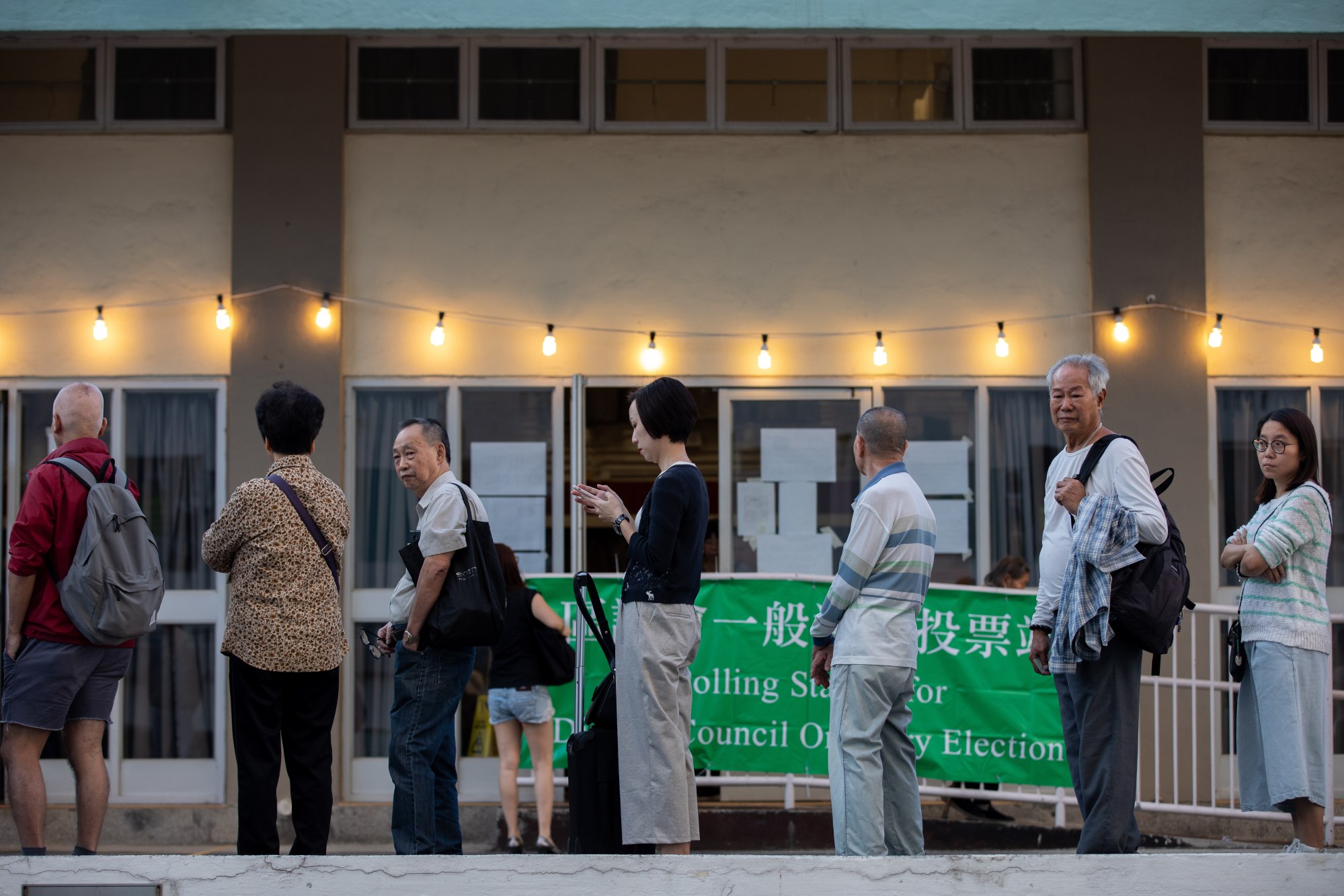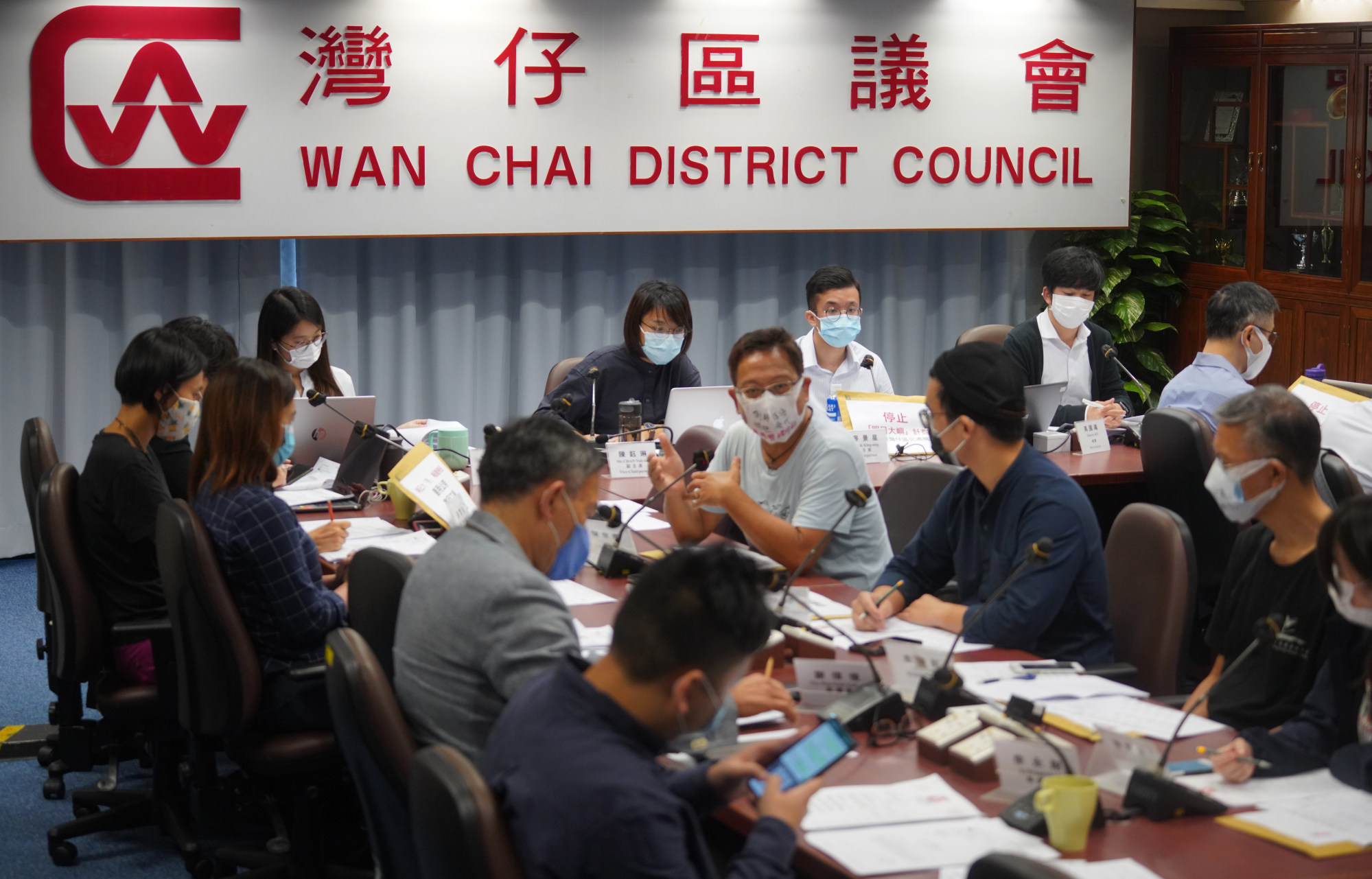
Hong Kong’s district councils to be chaired by government officials, hopefuls seeking fewer directly elected seats to undergo vetting
- Chief Executive John Lee says overhaul necessary to put municipal-level bodies back on right track of serving residents
- Next district councils, to be formed by end of year, will be composed of 470 representatives, and 88 seats will be returned through popular vote
Unveiling detailed plans to “depoliticise” the councils and redirect their focus to community-level livelihood issues, Chief Executive John Lee Ka-chiu on Tuesday said the overhaul was necessary to put the municipal-level bodies back on the right track of serving residents.

“The chaos that once happened in district councils pushed Hong Kong to the edge of a cliff, with some threatening national security,” he said.
“I will not allow any attempts by district councillors to sabotage the interests of Hong Kong and force residents to jump off the cliff with them.”
The next district councils, to be formed by the end of this year, will be composed of 470 representatives, and 88 seats, or 19 per cent, will be returned through popular vote.
Each of the city’s 18 districts will have between two and eight of those seats depending on the size of their population.
Of the remaining 81 per cent, half, or 179, will be directly appointed by the chief executive. According to Lee, “experience and knowledge of districts” will be the major criteria for selection.
The other half, or 176, will be decided by three committees packed with pro-Beijing figures. Another 27 seats will be reserved for indigenous villagers.

The overhaul will make the municipal bodies the least democratic since their formation in 1982, but Lee denied the revamp was a step backwards, saying it would make the groups more “representative” instead.
“There is no scientific basis for the idea that the more [directly elected] district councillors, the better,” he said.
“The councils’ legitimacy is derived from what they achieve for the benefit of society. I have strong confidence that the [reformed] councils will be able to perform their basic functions more efficiently.”
Hong Kong’s district councils ‘to be purely advisory bodies formed by patriots’
The reform, which will be the final step in Beijing’s series of electoral overhauls to ensure “patriots” run Hong Kong, was announced by Lee and four top officials following endorsement by the city’s key decision-making body, the Executive Council.
It must still be passed by the Legislative Council, which now consists almost entirely of pro-Beijing lawmakers.
Lee said the next district councils would no longer scrutinise government funding and would mainly be responsible for promoting and supporting the implementation of policy.
The proposal will also bolster the power of top-ranking district officials and government-appointed members of three long-standing community bodies.
A total of 2,490 members of the Area Committees, District Fire Safety Committees and District Fight Crime Committees will nominate 176 representatives to run for council seats, via block voting.

Each member will have multiple votes, depending on the number of seats up for grabs. The system will yield landslide majorities for the group of candidates with the most support.
The requirement of being nominated by registered electors of the constituency remains, but the minimum number will be raised from 10 to 50.
The election will adhere to a system whereby each voter will have one vote to elect two representatives in each constituency. But each directly elected member will have to cover a larger area, as boundaries will be redrawn by authorities to slash the number of constituencies from 452 to 44.
Hong Kong district councils to be patriots only, with ‘one-third of seats elected’
“In the past, councillors might turn down residents’ requests for help by saying ‘this is not my constituency’,” said home affairs chief Alice Mak Mei-kuen, formerly a district councillor.
“In future, members returned through other channels could form joint offices, providing more service spots to better serve people’s needs.”
A monitoring system will also be adopted to ensure district councillors fulfil their duties. A committee led by the Home and Youth Affairs Bureau chief will be empowered to initiate investigations into alleged misconduct or behaviour that does not fall “within public expectations”.

Democratic Party chairman Lo Kin-hei said the city’s largest opposition party would deliberate with its members over possible participation in the coming election.
Lo said he was confident the party’s candidates would meet the “patriotic” criteria and be able to secure nominations.
John Burns, an honorary professor of the University of Hong Kong’s department of politics, said councils with significant numbers of pan-democrats would provide some legitimacy to the bodies.
He also said its seemed “excessive” for authorities to assign government officials to chair the councils, adding there could be drawbacks with a heavy-handed approach.
“District councils should elect their own chairs,” he said. “But the real issue is: does the government trust the people? Apparently not.”
Lau Siu-kai, a consultant to the Chinese Association of Hong Kong and Macau Studies, said Beijing was signalling that opposition figures were still welcome in the coming poll.
He said he expected the importance of the councils would not be diminished, rather the reform would boost residents’ trust in the city’s patriotic forces, he said.
“As more talent from the pro-government bloc is expected to join the councils, they will strengthen the camp’s connections to residents and their social mobility in districts,” he said.



